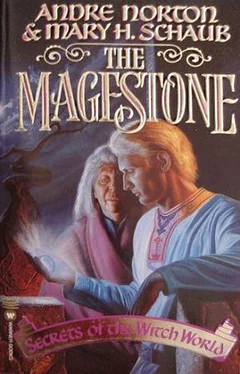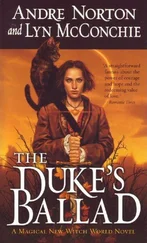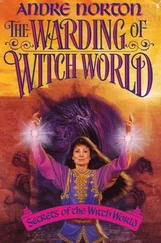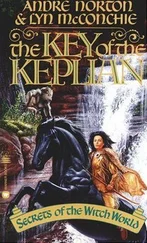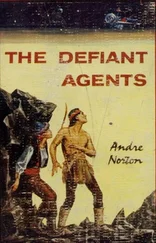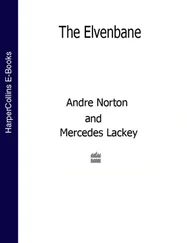Andre Norton - The Magestone
Здесь есть возможность читать онлайн «Andre Norton - The Magestone» весь текст электронной книги совершенно бесплатно (целиком полную версию без сокращений). В некоторых случаях можно слушать аудио, скачать через торрент в формате fb2 и присутствует краткое содержание. Жанр: Фэнтези, на английском языке. Описание произведения, (предисловие) а так же отзывы посетителей доступны на портале библиотеки ЛибКат.
- Название:The Magestone
- Автор:
- Жанр:
- Год:неизвестен
- ISBN:нет данных
- Рейтинг книги:4 / 5. Голосов: 1
-
Избранное:Добавить в избранное
- Отзывы:
-
Ваша оценка:
- 80
- 1
- 2
- 3
- 4
- 5
The Magestone: краткое содержание, описание и аннотация
Предлагаем к чтению аннотацию, описание, краткое содержание или предисловие (зависит от того, что написал сам автор книги «The Magestone»). Если вы не нашли необходимую информацию о книге — напишите в комментариях, мы постараемся отыскать её.
The Magestone — читать онлайн бесплатно полную книгу (весь текст) целиком
Ниже представлен текст книги, разбитый по страницам. Система сохранения места последней прочитанной страницы, позволяет с удобством читать онлайн бесплатно книгу «The Magestone», без необходимости каждый раз заново искать на чём Вы остановились. Поставьте закладку, и сможете в любой момент перейти на страницу, на которой закончили чтение.
Интервал:
Закладка:
A visitor to Rishdale Abbey this past summer had brought her word of an amazing discovery across the sea in Estcarp. Two years before, in the Year of the Kobold, an unprecedented quaking of the earth was wrought by Estcarp’s Witches to halt an invasion across their southern border from Karsten. One of the subsidiary results was the destruction of parts of the walls and towers at Lormt, the ancient citadel famed for its archives. Previously unknown storage rooms and cellars were exposed beneath the rubble, adding an untold wealth of documents to those already prized by kinship scholars.
The moment I read Dame Gwersa’s account, I knew that I must journey to Lormt. Until then, I had felt like a jeweler attempting to assemble a chaplet of Ithdale pearls, but lacking most of the significant gems needed to complete my pattern. My missing pearls were of two sorts: kin-facts, and knowledge about a very different kind of jewel. What better place could I seek both than Lormt?
Two primary questions had been—and still are—hammering in my mind: who was my true father, and whence came my mother’s chief legacy to me, that curious jewel she termed my betrothal gift?
From childhood, I had always assumed that I knew who I was. On the day I first met you, I identified myself on my writing slate—Mereth of far Ferndale, speechless since my birth in the Year of the Blue-horned Ram. You said that was an appropriate Year Name for one engaged in the wool trade, and a script as clear as mine should be as useful to a trader as a voice, yet far less likely to be misunderstood. I was seventeen then, and grateful for your kindness. Not many busy traders would pause to read my slate, or have the time or patience to answer my questions.
From that initial meeting, you were distinctively different from all the other traders, and not just because of your singular courtesy. I was bemused when you confided that you had two names: Lundor, given you by your parents, and Doubt, bestowed on you by the trading community. I recall thinking what a strange name Doubt was, so I wrote on my slate, “Why ‘Doubt’?”
You smiled, and replied that it was due to your deplorable habit of foreseeing all the possible objections to proposals—all the reasons why suggested plans might not work.
That night, I wrote queries to Mother about you. She laughed aloud, and said you also peppered your speech with frequent doubts. Assuming a severe expression, she imitated your deep voice, “Oh, I doubt we shall acquire any usable wool from that Dale this season—excessive rains spoiled their grazing land. Besides, I doubt they’ve yet repaired the only bridge allowing access by our wagons. This venture you propose will go ill, I’ve no doubt.” For all your gloom, she added, you were a very keen trader, and the Clan was fortunate to secure your service.
By the time two years later when Mother’s own trading wagon was swept away in the mountain landslide, my acquaintance with you had expanded from chance encounters to joint ventures. When I discovered that you shared my interest in kinship tracing, it was a pleasure to pass on to you some of the requests for kin lists from the merchants and landholders we met in the course of our regular trading work. Soon we were helping each other trace our own family histories. Your folk had clustered for generations in the coastal Dales near Seakeep, while Mother’s Robnore Clan had traveled from town to market to trading fair.
Mother first met Father at Twyford, whence both were drawn by the great annual wool fair. From her few remarks years later, I judged that she had been immediately impressed by his knowledge of the finest wool bearers. He confided to her his desire to locate the fabled blue-horned sheep of the western crags, for he was convinced that he could use them to improve the quality of the Dales’ wool. Knowing Mother, I expect she gave deep thought to his likelihood for success before she consented to wed him and accompany him on his search inland well past Uppdale and Paltendale.
Mother said to me once, with a fond but exasperated sigh, “Your father was a good man, but too enwrapped by his dreams of breeding the perfect sheep. To be fair to him, I must say I never met his equal for tracking and caring for sheep. Still, he needed to attend more to the trading side of the matter. Not my Dwyn—always off over the next ridge to snare yet one more wildling to add to his flock. Would that he had possessed more of the trading blood of his forebear Rodwyn of Ekkor! Yet each man must weigh what wool he can shear, and tally his own accounts.”
Father (as I then believed him to be) was a third son and distant lord-kin to the House of Ekkor. I remember him only dimly, since I was scarcely four when he set out during a storm to search for a lamb and never returned.
After his death, Mother placed me with the Dames of Rishdale Abbey to see if they might cure my muteness. They could not, but Dame Gwersa taught me diligently for six years. Mother came for me when I was twelve. Although the Dames offered to accept me for training as a religious scribe, Mother said that my writing skill would be of more use to her in trade. When the Dames objected that my muteness would be a disadvantage beyond the shelter of their cloisters, Mother asserted that on the contrary, it would be a positive trading advantage, since I could neither tattle secrets nor offend customers with unwise chatter.
I soon found that in Mother’s trading business, I had a talent for handling accounts, determining values, and locating goods. A far rarer talent—uncommon among Dalesfolk—was my ability to find lost articles, especially if I could touch some other object belonging to the owner.
In those days, too, I experienced occasional vivid dreams. All I could recall upon waking were flashes of bright colors and snatches of strange music. When I was about fifteen, I wrote haltingly about my dreams one day when I was alone with Mother. She was always occupied; her hands were never idle longer than it took for her to snatch up a new hank of wool or the next bundle of tally sticks. That day, when she read my slate, she actually dropped her knitting in her lap and sat rigidly still. I vow her face paled beneath its ruddy sunwarmed hue.
In a manner quite unlike her usually brisk speech, she said slowly, “I once had peculiar dreams for a time . . . before you were born. After your birth, they stopped. I had not thought of them for years.” She shook her head, and resumed her knitting. “Such things are mere night vapors, banished by the light of day. Put them from your mind.”
It wasn’t long after that incident that Mother first mentioned my betrothal gift. I had found for her a missing bracelet, one of a pair she prized, for she loved fine jewelry. In her pleasure at the recovery, she told me that there was one very special piece—a gift—put away for my betrothal.
Excited, I wrote on my slate, “Whose gift? See it now?” but she only paused at the door on her way out. “No,” she said firmly, “you may not see it until you are promised to be wed. It is an old and valuable gift from a . . . secret source that I cannot name.” I was disappointed at the time, but in the subsequent press of work, I gradually forgot about the gift until the accident in the mountains reft Mother from me.
You were assisting Uncle Herwik then at our base in Ulmsport, while I was in Vennesport, a week’s travel to the south. Mother had argued for a second trading base there, and had only just shifted her chief residence to the port—if she could be persuaded to halt in any one place long enough to be said to reside there. I was almost twenty when she died. You and Uncle Herwik’s party had been delayed by storms, so I employed the time of waiting by sorting through Mother’s possessions, setting aside those items she would have wanted to be given to various relatives and friends.
Читать дальшеИнтервал:
Закладка:
Похожие книги на «The Magestone»
Представляем Вашему вниманию похожие книги на «The Magestone» списком для выбора. Мы отобрали схожую по названию и смыслу литературу в надежде предоставить читателям больше вариантов отыскать новые, интересные, ещё непрочитанные произведения.
Обсуждение, отзывы о книге «The Magestone» и просто собственные мнения читателей. Оставьте ваши комментарии, напишите, что Вы думаете о произведении, его смысле или главных героях. Укажите что конкретно понравилось, а что нет, и почему Вы так считаете.
